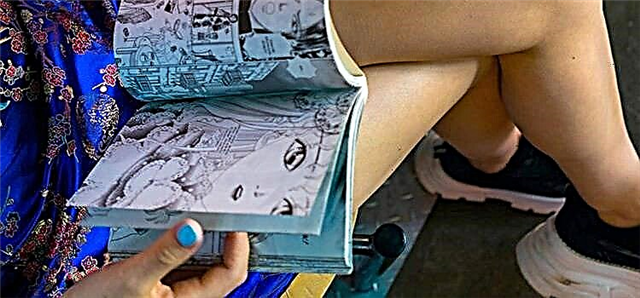Tags: cinema

It took a decade and 18 films, and the Marvel Cinematic Universe finally has a superhero movie that feels like it was ripped from the pages of a comic book. Discarding the familiar roster of MCU heroes (they don't get as many mentions) as many of the mainstream Marvel movie formulas, Ryan Coogler has turnedBlack Panther into a very personal story in the spirit of his latest films, Rocky and its sequelcreedbut with all the features and intrigue provided by its main setting, the fictional African kingdom of Wakanda.
The plot itself stretches from Wakanda's futuristic Sudano-Sahelian skyscrapers to Kugler's native Auckland, through several dream sequences (all significantly dramatic, some quite touching) and backstory. The film opens with an animated prologue that outlines an alternate history of Wakanda, where massive deposits of a fantastical element called "vibran" (which by the way is what Captain America's shield is made of) gave rise to a scientifically advanced civilization that hid itself from outsiders. The Wakandans live a century ahead of the rest of the world, their superweapons and metropolitan architecture hidden by mountains and holograms. These are five tribes, more or less united by one king, who protects his people like a high-tech Black Panther. Meeting shortly after the eventsCaptain America: Civil War, which gave the character his debut on the big screen,Black Panther finds the Prince of Wakanda, T'Challa (Chadwick Boseman, in a purring accent), returning to take up the mantle after his father's death.
Comics have never needed realism to create complex character arcs or social commentary, and perhaps the reason whyBlack Panther so strongly reminiscent of a real Marvel comic is that she expresses her ideas with an irreconcilable clash. The film features armored rhinoceros, Ruritanian power struggles, crazy inventions (like nanobot boots) that outsmart Jules Verne and James Bond, characters, a secondary villain who spends most of his screen time clucking about his own villainy - the one-armed ribulin merchant Ulysses Klaue (Andy Serkis), an uncommonly funny bad guy in the era of the ruthless steppe wolves and Ronan the Accusers. This means that partsBlack Pantherare cartoonishly amazing, backed up by Ludwig Göransson's brass fanfare of appreciation, which inevitably brings to mind the music of the belovedRocky Kugler.
But the film is not perfect. Specialist. the effects are uneven, filled with fake landscapes and CGI characters, and what we see in urban Wakanda is poorly and under-represented. But while Coogler isn't the most opulent cinematographer, he often impresses with his dramatic prowess. He brings stimulusCreedin boxing matches with longer fight scenes, creating an incredibly interesting sequence. T'Challa is able to capture Klau, joined by his former girlfriend Nakia (Lupita Nyon'o) and his bodyguard Okoye (Danai Gurira), as head of the Dora Milaye, the stylishly imposing elite of Wakanda's warlike warriors. (They look like "Grace-Jones," according to one character.)
A hero in a sleek black suit and claws, not interested in playing well with others (or even bothering to learn names). He is outwardly cool, brought up from birth to be a leader, but his conflicts are all internal. In a sly move, Coogler and his collaborator Joe Roberta Cole pit his personality against a host of goodies: his teasing teenage sister, Shuri (Letitia Wright); his friend V'Kabi (Daniel Kaluuya); M'Baku (Winston Duke), leader of the hostile mountain-dwelling Jabari tribe; Zuri (Forest Whitaker), the oldest mystic of Wakandan's ancestral ceremonies; CIA operative Everett K. Ross (Martin Freeman); the aforementioned Nakia and Okoye. Most of these characters have different opinions about the role of a king (or, in M'Baku's case, T'Challa's suitability for the throne).
But the main story comes from Eric "Killmonger" Stevens (Jordan). Classic comic book nemesisBlack Panther, which was republished by Cogler and Cole, he is the American son of a Wakandan prince - a brash and cold-blooded killer who eventually has his own Black Panther costume, his ruthlessness elicited sympathy for the Jordanians. T'Challa is indecisive (seemingly the fate of all princes with murdered fathers who want revenge) while he is just as righteous as Captain Nemo, angered by racism, imperialism, war, and all other black people who survived outside Wakandan bubble. From its opening scene, the film sets betrayal as its central theme, only to push it back. Wakanda's foreign policy is one of espionage and camouflage, which probably makes a conspiracy inevitable. But there must be some explanation for the fact that most of the characters in "Black Panther" (a film in which crises of personal and cultural identity drive the main plot) are spies or have secrets.
Trailer "Black Panther"
"Wakanda forever!" Dora Milaye's battle cry is heard in a climactic battle between royal sonic weapons, force fields, and vibranium-enhanced rhinos. But what is Wakanda?Black Pantherdoes not shy away from the messianic ambiguity of this Afro-futurist Shangri-La, which offers not only the wonders of things to come, but a complete rewrite of history – a diverse, leveling sub-Saharan region, untouched by colonialism or the slave trade, completely free from the influence of the West. As in the comics, the most intriguing thing about Wakanda is its contradictions. Black Panther guards the way of life in Wakanda, but the Wakandans themselves are fiction, disparate tribes (one of whom doesn't even acknowledge T'Challa's authority) who have made deception a high-tech art. They live in the future and the past, but not in the present moment, or at least in the present moment, which also includes aliens and superheroes.



